Back in the Classroom: Neoliberalism, Precarity, and the Stories We Tell
The first week back teaching always brings a mix of anticipation and reflection. This year, as I welcomed my final-year students to the module “Precarity & Insecure Lives,” I was struck by how urgent and relevant our opening topic felt: Neoliberalism—its origins, its evolution, and its ongoing impact on everyday life.
Neoliberalism can feel abstract, but its consequences are lived and felt every day. Its hard for us to think about what ‘Neoliberalism’ is, because its so much a part of our lives, so its difficult to see it objectively. By unpacking its history and connecting it to our own experiences, we can begin to imagine alternatives—and perhaps, in some small way, contribute to building a more secure and just world.
Tracing the Roots: From Mont Pèlerin to Modern Britain
We began by tracing neoliberalism’s intellectual roots, starting with the Mont Pèlerin Society—a gathering of economists and thinkers in the aftermath of World War II, determined to champion free markets and individual liberty. These ideas, once on the margins, gradually gained traction, culminating in the policies of Margaret Thatcher in the UK during the 1980s and 90s.
For many students, this historical journey was eye-opening. We discussed how Thatcher’s government dismantled much of the post-war welfare state, prioritising deregulation, privatisation, and a belief in market solutions. The consequences, we agreed, were profound: a reshaping of the social contract, the rise of insecure work, and the erosion of collective safety nets.
Neoliberalism’s Legacy: From the Great Recession to Brexit
Our conversation didn’t stop in the 20th century. We explored how the groundwork laid by Thatcherite policies created the conditions for the Great Recession of 2008—a crisis that exposed the vulnerabilities of an economy built on financialisation and precarity. The aftermath, marked by austerity and growing insecurity, set the stage for the Brexit referendum, as fear and frustration found political expression.
Students were quick to draw connections between these macro-level shifts and the realities they see around them today: zero-hours contracts, rising living costs, and a pervasive sense of uncertainty about the future.
Learning from Each Other: Student Perspectives on Precarity
To deepen our understanding, we turned to the flipchart paper—an effective tool for collective brainstorming. I asked students to map out their own definitions of neoliberalism and to share how they see its effects in their lives and communities.
The responses were powerful. Words such as “hustle” and the normalisation of insecurity in the job market; The impact on mental health, housing, and the social fabric of towns and cities. There was a sense of anger, but also of solidarity—a recognition that these issues are not individual failings, but the result of broader structural forces.
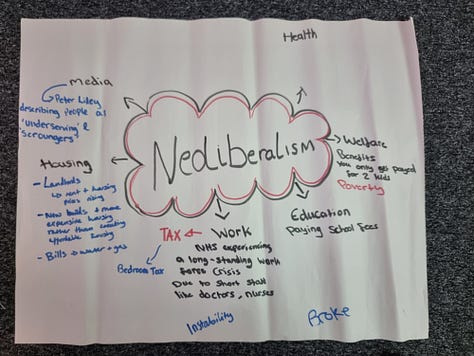
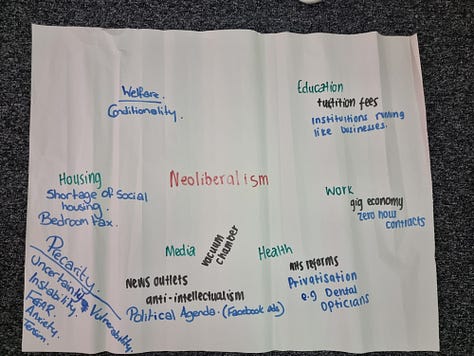
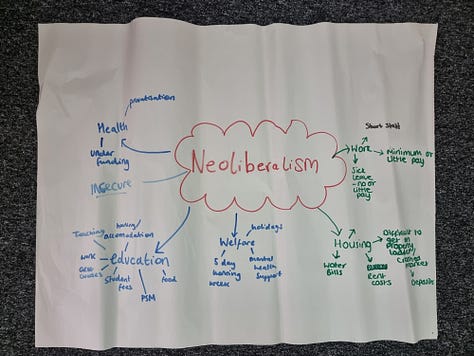
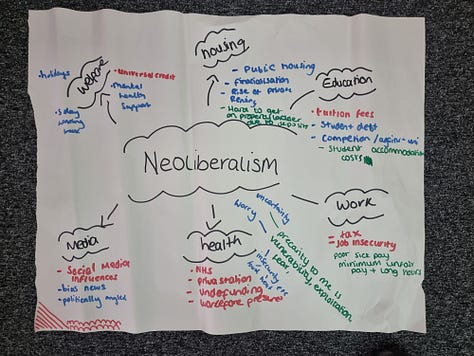
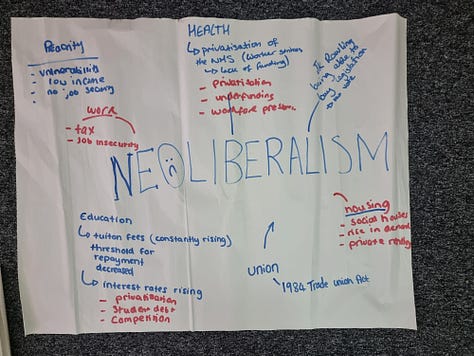
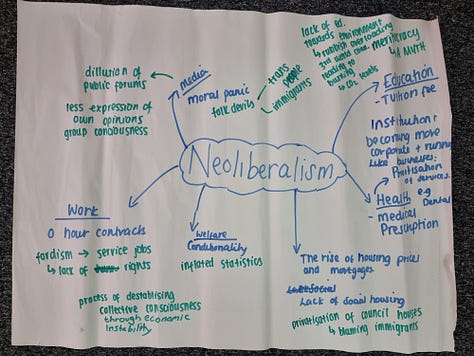
Looking Ahead
As we move forward in the module, I’m excited to see how these conversations develop, as next week we dive into Guy Standings work on ‘The Precariat’. The students’ insights remind me that teaching is not just about transmitting knowledge, but about creating space for critical reflection and collective meaning-making.


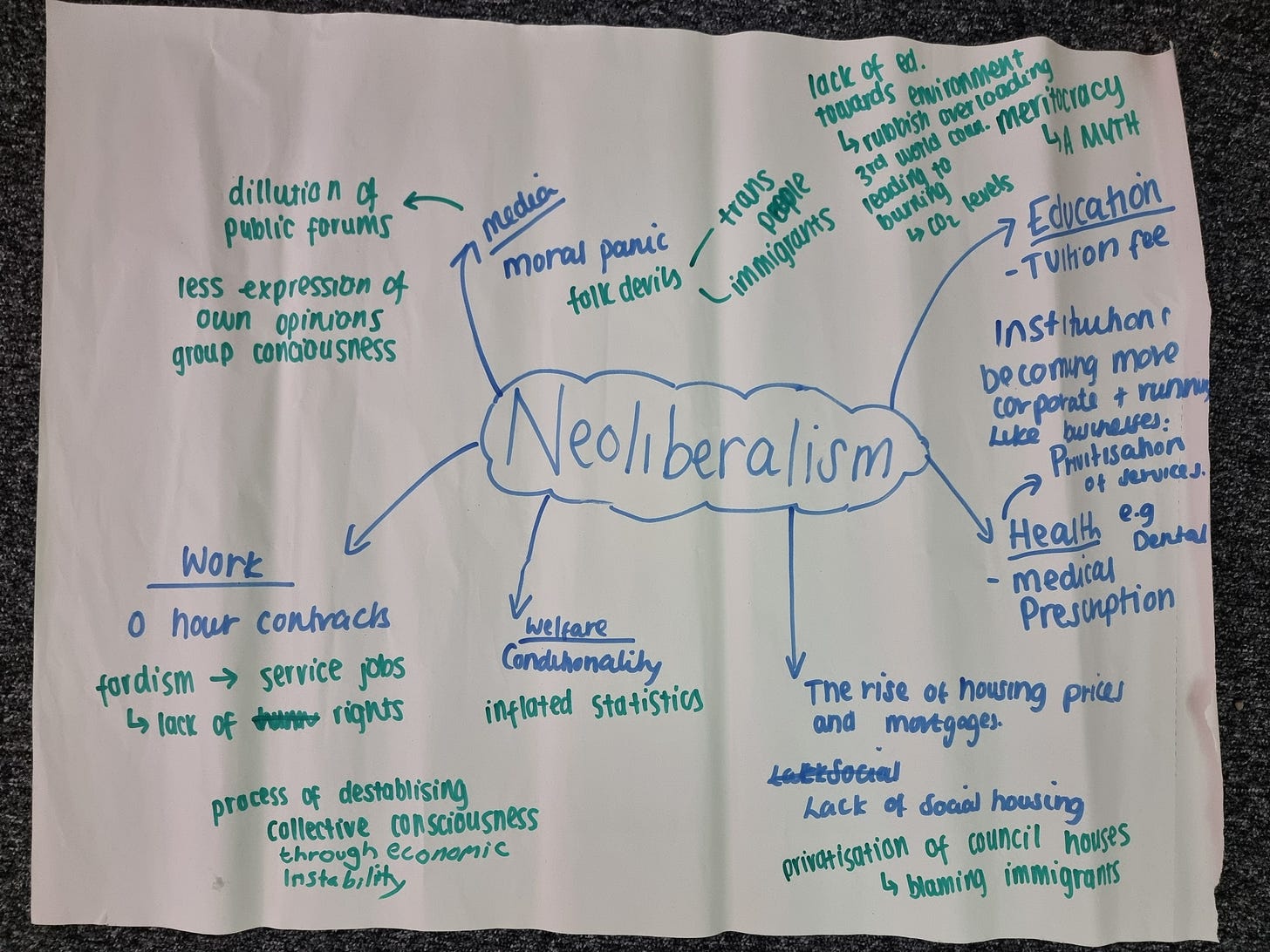

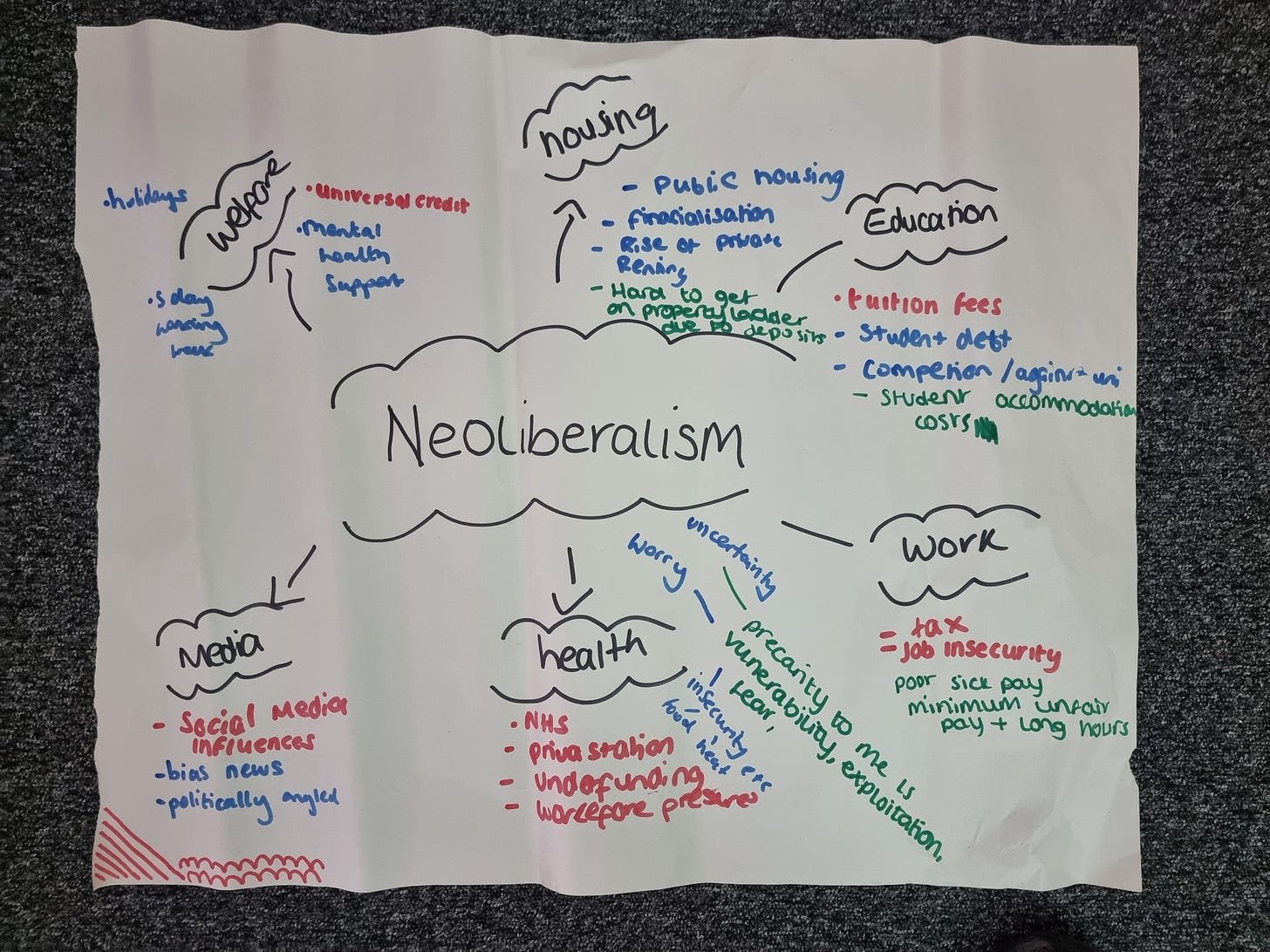
What the hell is ‘collective meaning-making’, and why is it that as a discipline, sociology is riddled with gobbledegook, and each writer has to invent some new ‘concept’?